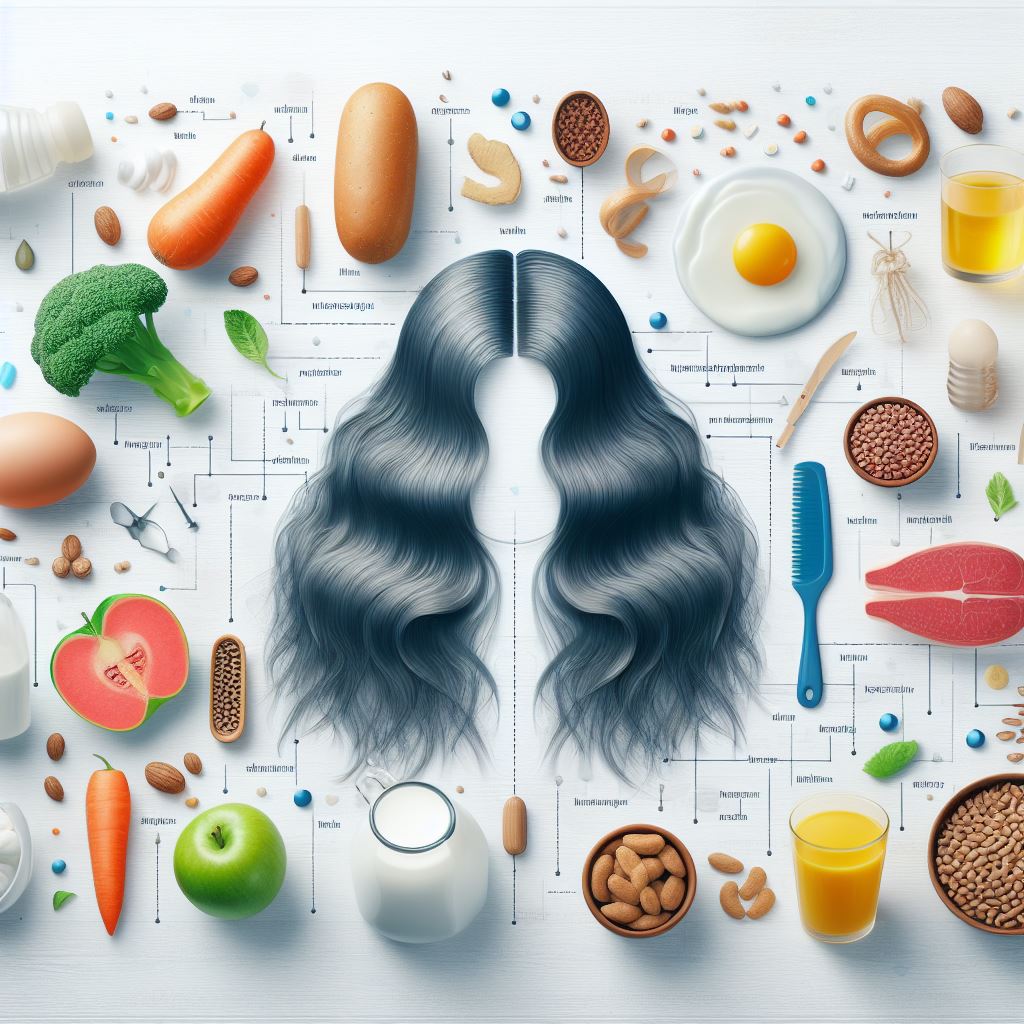Hair loss is a very common health problem that affects many people around the world. While many factors can influence this phenomenon, it is essential to understand the impact of nutrition on hair health.
In this article, we will explore in detail the causes and effects that nutrition can have on hair loss.
Before going deeper into this topic, it is important to point out that our scalp and hair follicles need adequate nutrition to stay healthy. Lack of certain essential nutrients can cause hair quality to decline, causing hair to become brittle and more likely to fall out.
First, let’s look at the most common nutritional causes of hair loss. An unbalanced diet can lead to deficiencies in essential vitamins such as vitamin D, vitamin E, and vitamin B. These vitamins play an important role in the health of our hair. For example, vitamin D keeps hair follicles healthy, while vitamin E improves blood circulation in the scalp, thereby promoting hair growth. Vitamin B deficiency can also weaken hair and make it fall out more easily.
Another nutritional factor that can affect hair health is insufficient protein in our diet. Hair is mainly made up of proteins called keratin. Therefore, adequate protein intake is essential to maintain their strength and health. Protein deficiencies can lead to loss of hair volume and density, as well as weakening of the hair’s overall structure.
In addition to nutritional deficiencies, certain dietary habits can also contribute to hair loss. For example, consuming too much sugar and fat can lead to health problems such as diabetes and obesity, which in turn can affect hair health. Additionally, oxidative stress caused by an unhealthy diet can damage hair follicles, leading to premature hair loss.
Now that we’ve explored the nutrition-related causes, let’s look at the effects these deficiencies can have on our hair. First of all, a poor diet can lead to premature, also known as alopecia. A deficiency in essential nutrients weakens hair follicles, making them more vulnerable to environmental factors and ultimately prone to loss.
Additionally, poor nutrition can also reduce hair quality. Hair can become dry, dull, and brittle, making it more susceptible to damage. Therefore, a balanced and nutrient-rich diet is essential to maintain healthy hair.
In conclusion, nutrition plays an important role in the effects of hair loss. Vitamin and protein deficiencies as well as an unbalanced diet can weaken hair and make it more likely to fall out.
Therefore, it is essential to consume a balanced diet, rich in essential nutrients to maintain the health of our hair. Remember to consult a healthcare professional before making any changes in your diet to treat or prevent hair loss.

